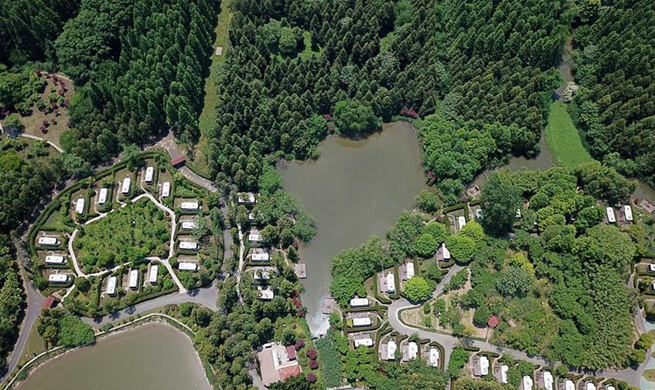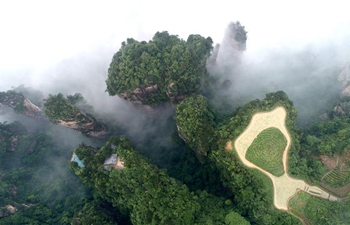CAPE TOWN, May 28 (Xinhua) -- South Africa has expanded its marine protection areas (MPAs) to provide protection to 90 percent of marine habitat types, the Department of Environmental Affairs (DEA) said on Tuesday.
The move, which is in line with South Africa's international commitments, strives to support multiple objectives for biodiversity in alignment with ocean economy goals, the DEA said.
This new network of 20 MPAs will contribute to fisheries sustainability, advance marine ecotourism and help maintain resilience in ecosystems that are under stress from climate change, DEA spokesperson Zolile Nqayi said.
The expansion has increased South Africa's marine ecosystem area under protection in the country's Exclusive Economic Zone from the current 0.4 percent to 5.4 percent.
The new MPAs represent seamounts, submarine canyons, volcanic pinnacles, and a variety of ecosystem types on the shelf, continental margin and abyss in both the Indian and Atlantic oceans, according to the DEA.
They also provide the first protection for several threatened and fragile ecosystem types, including threatened mud, gravel, and shelf edge habitats and sensitive deep water scleractinian corals, according to the DEA.
South Africa's ocean space, which is one of the most varied in the world, is highly productive with rich biodiversity providing for living and non-living resources that contribute significantly to the country's economy and to job creation.
The MPAs contribute to growing South Africa's marine eco-tourism sector by providing undisturbed natural habitat for whales, sharks, seals, dolphins, turtles and seabirds for international and domestic tourists to experience, Nqayi said.
An adequate network of MPAs also provide the basis for ongoing resilience to the impact of climate change, he said.
The new MPA network is a product of extensive consultation and negotiation with all stakeholders, which sought to ensure that the network is aligned with relevant policies and priorities for fisheries, aquaculture, tourism, as well as marine mining and oil exploration, while also protecting ecologically important areas, said Nqayi.













